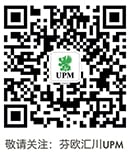Fluorochemicals, or per-and polyfluoroalkyl substances (PFAS), are used in pizza boxes, take-out containers, and burger wrappers to prevent grease and water from soaking through the packaging. While these properties are crucial for functional food wrappers, PFAS can be harmful to both environment and human beings.
Other than food packaging, PFAS are also used in for example non-stick cookware and fire retardants, and as stain and water repellents in furniture, textiles, rubbers, plastics, and electronics.
Several of the chemicals are linked with health risks such as increased cholesterol levels, impact on infant birth weights, effects on the immune system, possible increased risk for cancer, and thyroid hormone disruption.
Also known as “forever chemicals”, PFAS contain carbon-fluorine bonds, which are among the strongest chemical bonds in organic chemistry. They do not break down in the environment, and can be found practically anywhere: In air, soil, and drinking water as well as fish, wildlife, and human bodies.
More PFAS bans on the way
Only few of the many thousands of PFAS that exist have been investigated. Some, including perfluorooctane sulfonic acid and its derivatives (PFOS) and chemical compounds related to perfluorooctanoic acid (PFOA), are already restricted by the international Stockholm Convention, and banned in some parts of the world.
“At the moment, especially the EU and US are tightening the rules. Denmark already has a strict limit on PFAS. The train is moving towards a ban,” explains Kalle Luomi, Senior Manager for Product Safety at UPM Specialty Papers.
Luomi and his colleagues are constantly keeping an eye on legislative work around the world to best ensure product safety and to be well ahead of new bans and trends.
The US consumer organisation Consumer Reports recently tested 100 food packaging products from restaurants and grocery shops and found the chemicals in some packaging from every retailer they looked at. In many of the products, the levels of PFAS were alarming.
To protect consumers and avoid negative publicity, many brand owners are already in the process of eliminating PFAS from their packaging. One sure way to do that is to choose paper from a supplier that doesn’t use PFAS at all – such as UPM.
“UPM recognised its responsibility regarding PFAS already in the early phases. Our first PFAS-free grades were developed around 2012, and nowadays we are not using these chemicals at all in UPM,” Luomi points out.
Barrier papers protect food without PFAS
Grease and moisture resistance and other functional properties are crucial for many of the end-uses that UPM packaging papers are used for. Fortunately, with the right expertise, coatings with PFAS or other potentially harmful substances are not required.
UPM’s safe and sustainable barrier papers have similar protecting properties – without the harm.
When developing new unique products, being ahead of trends is an advantage, Luomi explains.
“It’s a learning process with a lot of tests and trials. Now we have found a good recipe, and our barrier technology offers excellent resistance against for example grease and moisture. Our papers behave well in food usage applications where these barrier properties are needed,” he says.
By choosing UPM barrier papers, converters and brand owners can offer their customers a PFAS-free alternative that is good for the health of humans as well as the globe. All our packaging papers are made from responsibly sourced fibres and recyclable in existing systems.
